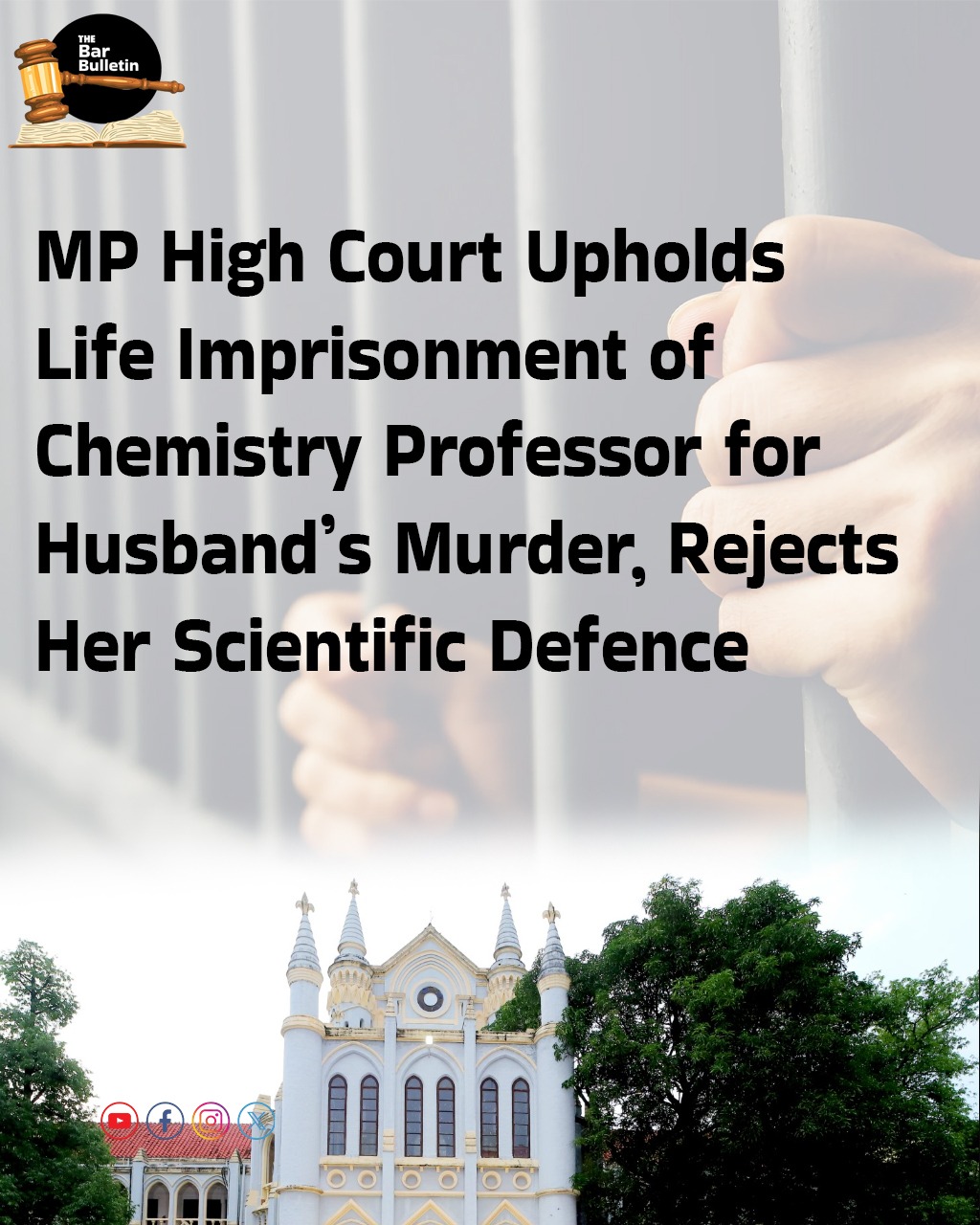The Madhya Pradesh High Court has upheld the conviction and life sentence of a government college chemistry professor, for the murder of her husband by electrocution, dismissing her defence based on scientific explanations.
The case involved allegations that she used her expertise in chemistry to construct an electrocution device with open live wires placed near a cooler, resulting in her husband’s death. The trial court had convicted her under Section 302 of the IPC, sentencing her to life imprisonment.
A Division Bench of Justice Vivek Agarwal and Justice Devnarayan Mishra dismissed the appeal, observing that the scientific evidence presented by the appellant was speculative and failed to create reasonable doubt. The Court emphasized that mere academic knowledge or the use of scientific jargon could not override clear forensic and circumstantial evidence pointing to guilt.
The High Court noted that the postmortem report confirmed death by electrocution, and that the theory advanced by the accused relating to the positioning of wires and the impossibility of electrocution was unsubstantiated and inconsistent with the scene of crime and medical evidence.
Rejecting arguments based on probabilities and theoretical explanations, the Court held that the chain of circumstantial evidence was complete and sufficient to affirm the conviction. The judgment reaffirms the principle that scientific qualifications cannot be used to camouflage premeditated acts, and upholds the trial court’s sentencing as lawful and justified.
Appearances:
Shri Surendra Singh, Senior Advocate assisted by Shri Kapil Pathak, Advocate alongwith appellant Smt.Mamta Pathak.
Shri Manas Mani Verma, Government Advocate for the State



